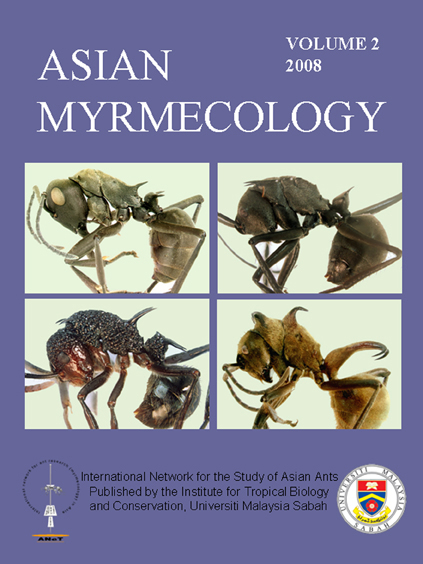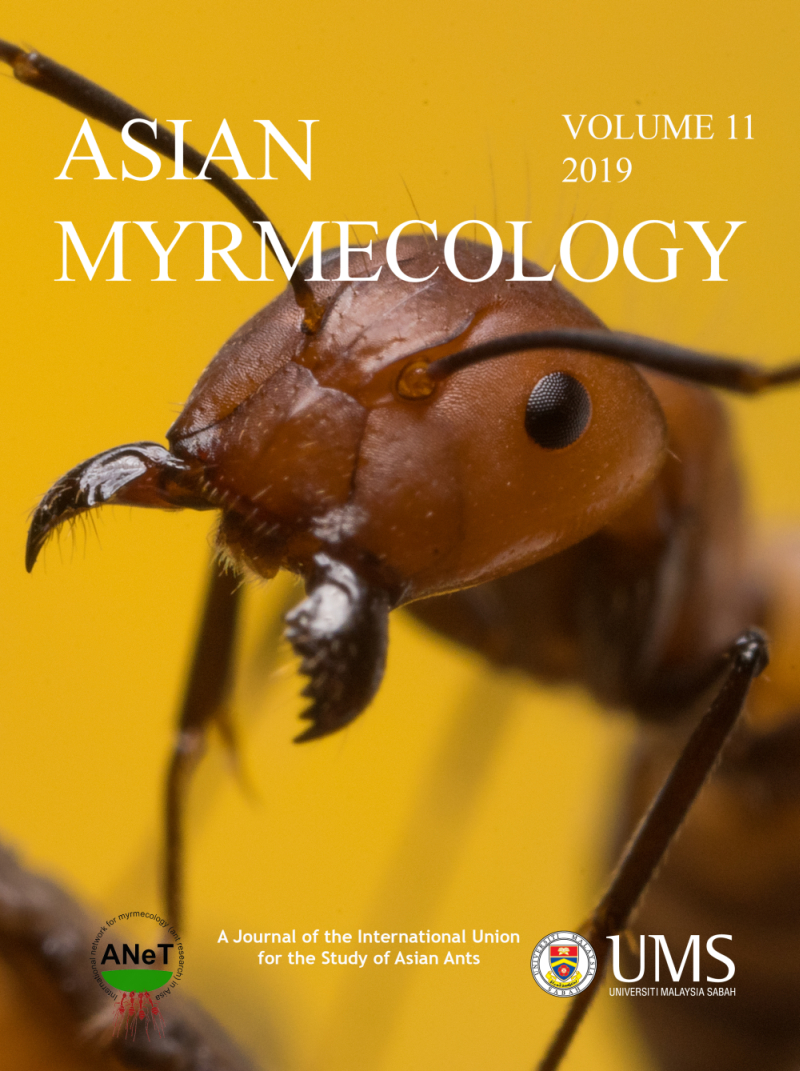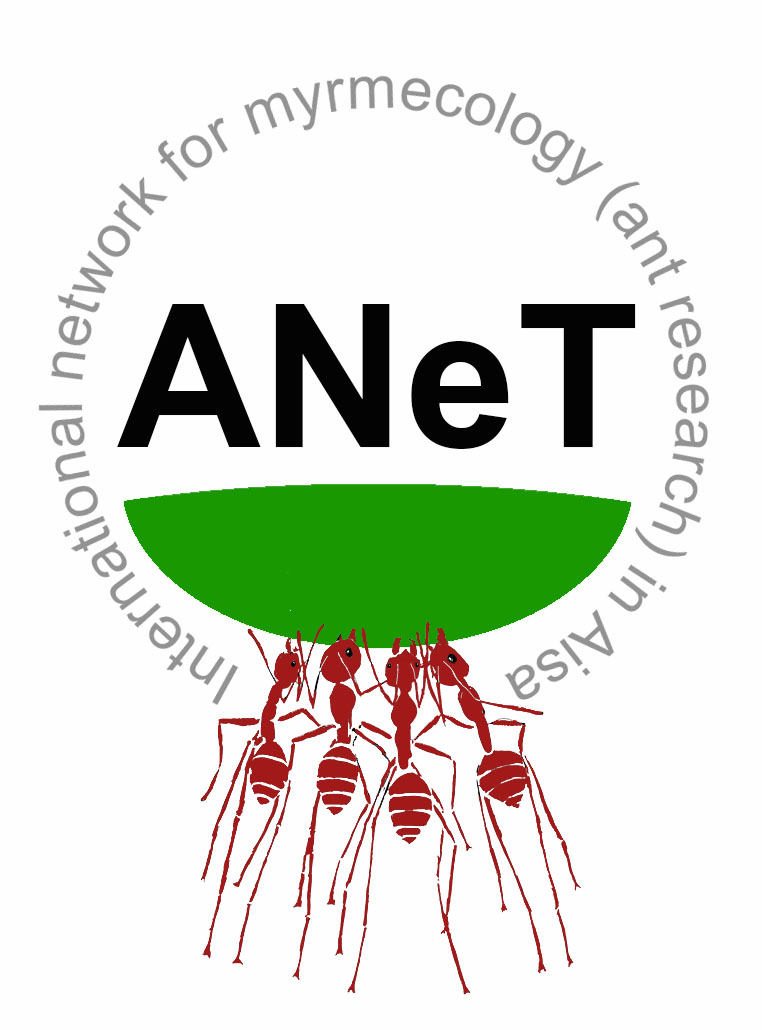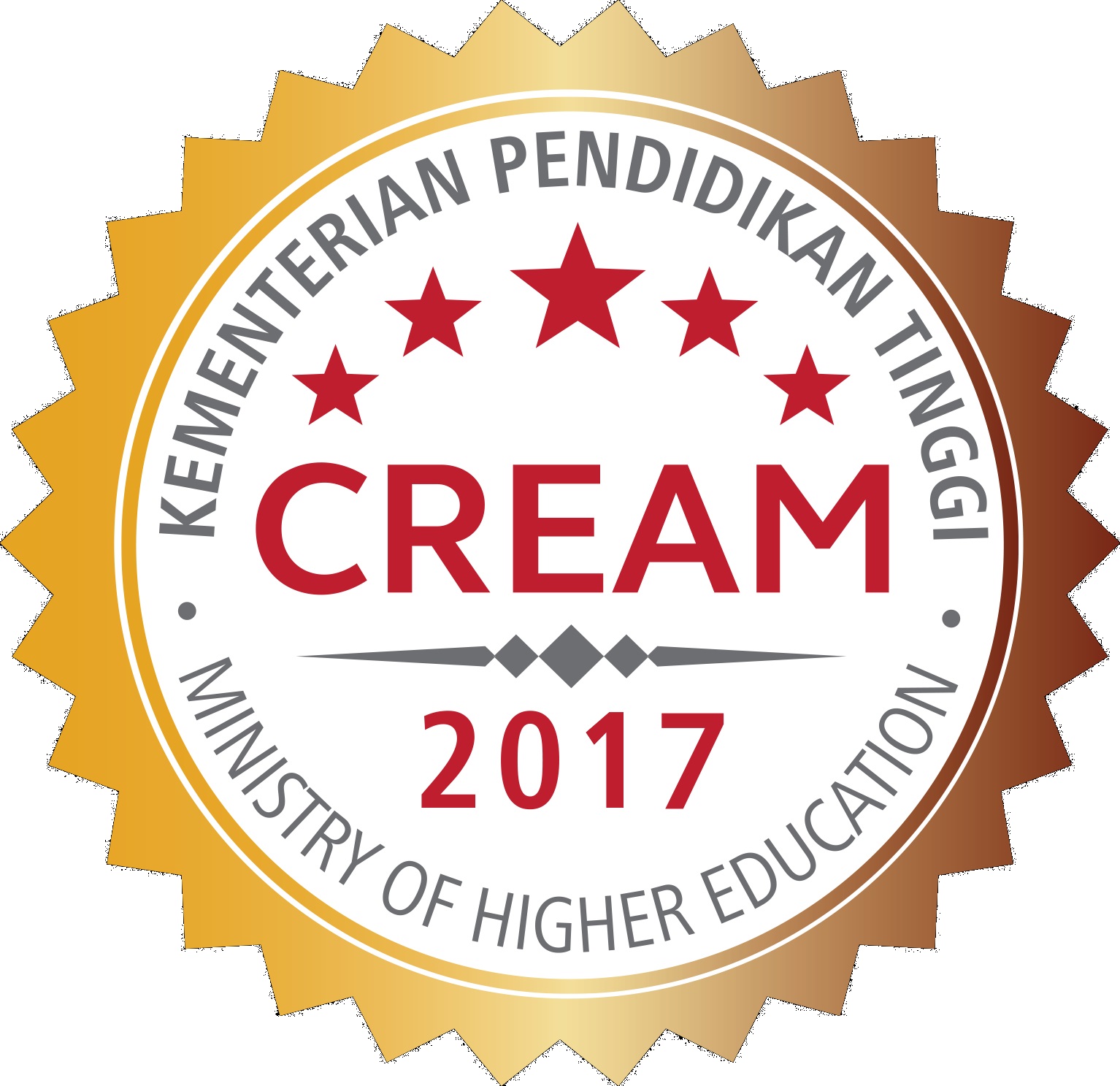ASIAN
MYRMECOLOGY
Image: François Brassard
Ecology and Distribution
Asian Myrmecology, Volume 2, pages 17-32, published December 2008
DOI: 10.20362/am.002003
Do tenants always pay their rent? The Asian ant-plant Pometia pinnata (Sapindaceae) and its leaf domatia provide free access to generalist ants
JOACHIM MOOG1*, KATJA ATZINGER1, ROSLI HASHIM2, ULRICH MASCHWITZ1, 3
Abstract:
The tree Pometia pinnata Forst. forma glabra (Bl.) Jacobs is an ant-plant that provides lodging (leaf domatia) and food (extrafloral nectar, excretions of coccids) for ants. The leaf domatia are formed by two pairs of strongly modified basal leaflets. In total, 63 ant species from 18 genera and 4 subfamilies were encountered in the domatia of the host in the study area (Ulu Gombak, Malaysia). We found that the ant⁄Pometia relationship has two stages: (i) an early ‘myrmecophilic’ phase of juvenile, domatia-free plants, and (ii) a ‘myrmecophytic’ phase of older plants in which ants nest in domatia. In the myrmecophilic stage, our short-term experiment revealed a significant greater loss of young leaflets when ants were excluded than on control plants to which ants had access; however, the area of remaining leaf was not different between treatment and control. Similar ambiguous effects were observed in the myrmecophytic stage: a snapshot census revealed no significant difference in the standing level of leaf herbivore damage between branches with and without nesting ants. However, our survey indicated that ant species differed in the protection provided to their host. Our data also suggest that presence of nesting ants substantially reduces damage to the leaf rachis.
Keywords:
ant-plant interaction, protection mutualism, conditional outcome, leaf domatia, myrmecophyte, Pometia, Lepisanthes, Malaysia, SE Asia
Get PDF (597K):
1Zoological Institute, Dept. of Biological Sciences, J. W. Goethe University, Siesmayerstr. 70, 60054 Frankfurt am Main, Germany
2Institute of Biological Science, University of Malaya, 50603 Kuala Lumpur, Malaysia
3Institute of Apidology, Dept. of Biological Sciences of J. W. Goethe University, Karl-von-Frisch-Weg 2, 61440 Oberursel, Germany
*Corresponding author: j.moog@bio.uni-frankfurt.de



